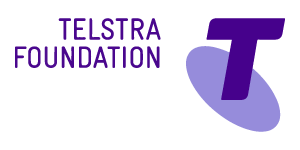
Performl: Using data to end disadvantage and improve lives
Performl: Using data to end disadvantage and improve lives
Organisation: Performl
Innovation Program: Humanitech Lab
Collaborators: Foundation Customers, Karitane, Northcott, Scope, Marathon Health, Achieve Australia, Possibility and Sunnyfield.
-
Challenge: Thousands of people with a disability face extreme disadvantage across Australia, yet almost $9.5 billion in NDIS funding went unused last year. While there is an abundance of data, there is no easy method for disability services to identify who needs what support.
-
Technology: Performl has developed a platform that uses new technology to connect millions of structured and unstructured data points about unmet need to unmask areas of inequality, such as the location of groups with particular disability support needs.
-
Validate: Performl validated its solution with service providers to understand their current barriers and unique requirements in accessing information, as well as subject matter experts on the potential of new data and measurement approaches to ensure the technology’s application would be effective, ethical and safe.
-
Feedback: Stakeholders strongly agreed on the need for Performl’s platform. It was noted that existing measures obscure crucial data about unmet need, that Performl’s approach provided new insights to address disadvantage, and its easy-to-use interface reduced provider’s barriers to accessing information to take action.

Loki and Harrison Ball were in the middle of a lengthy struggle to secure specialist accommodation for their brother, who has an intellectual disability, when they encountered a surprising issue.
The specialist housing they were looking for hadn’t been built in their area - despite an abundance of need.
“Without developers being able to access information that clearly identifies where there is the greatest need for disability housing in the community – and the specific requirements - the houses just weren’t getting built in the areas they were needed most,” said Loki Ball.
“The result was a scarcity of specialist accommodation and years-long waiting lists for candidates to access the housing support they required to live near their loved ones and communities,” Loki continued.
This issue is widespread across the social services sector, as it is extremely difficulty to access data that identifies people’s unmet need in order to effectively target support.
Loki has a unique insight into the issue, as a former KPMG consultant to the industry and Chief of Staff to three social services Ministers.
Knowing that his background could help to address this gap, Loki left his role in government to start Performl, a start-up using technology and data to disrupt disadvantage and support social services organisations to access the information they need most.
A few months later, Loki convinced his brother Harrison – a physicist with a specialty in quantum computing – to join him and Performl was launched.
A value-based approach to using data about people’s needs
After extensive time spent developing their software prototype, and early engagement with social services organisations, Loki and Harrison were looking to better understand the unique needs of service providers in the disability sector before beta testing could begin.
To validate their product, Performl partnered with Humanitech, an initiative of Australian Red Cross dedicated to exploring the use of technology to meet humanitarian need.
Through Humanitech’s innovation program - made possible through the support of founding partner Telstra Foundation - it works with start-ups like Performl to explore the development of technology alongside communities and people with lived experience.
“We were looking to validate our assumptions around two key issues,” said Harrison Ball, CTO of Performl.
“Firstly, were we correct in understanding that the technical difficulty in accessing meaningful disability data was providing significant barrier for service providers. Secondly, can a new approach that uses technology to transform the data successfully - and ethically – meet this need,” he said.
The team engaged with eight social services organisations, who strongly agreed that they needed to be able to access data more easily to address unmet disability support needs.
For example, Marathon Health – which is committed to improving people’s health and wellbeing - have used the data to inform local resourcing and recruitment decisions where people have unmet support needs.
Additionally, the team engaged subject matter experts across a range of industries to examine the potential of a valued-based approach data linkage and labelling using Performl’s technology. These individuals reinforced the need to work ethically with affected stakeholders to help ensure the application of this technology is effective and safe – and that the experimental nature of this work required long-term committed partners to support its success.
Loki Ball said that this is where Humanitech’s Humanity First prototype has been instrumental. The approach is being developed to guide the ethical development of technology in addressing humanitarian problems, focusing on addressing unintended consequences of products and services and maximising its benefits amongst people and planet.
“The Humanity First principles have been essential in developing our approach to developing our technology to safeguard the rights of our customers and affected people responsibly,” Loki said.
“It has also been helpful in thinking through our exclusion framework and the circumstances where we would refuse to supply our service.
“For example, an insurance stakeholder approached us several months ago to use our data to price optimise premiums using small area insights on crime prevalence, which would ultimately make coverage less affordable for vulnerable communities. We used the Humanity First Principles to decide this type of use - and potentially harmful uses - are out of scope,” Loki said.
What’s next?
Following the success of the validate project, Performl is now working with broader sector stakeholders to expand and enhance its service.
“It was our brother’s difficulties in accessing specialist disability housing that started us on the journey to launch Performl. Today, a specialist disability accommodation provider is using our data platform to help identify where there is greatest need for specialist housing,” said Loki.
“There have been many highlights so far, but that has been a particularly special moment for us along the journey.”
To learn more about Performl, or to book a demonstration for your organisation, visit Performl’s website.

